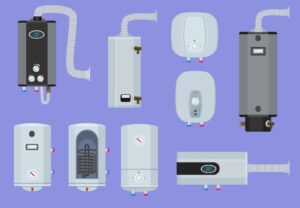How A Ductless Mini-Split Is Better for Supplemental Heating Than Space Heaters
Some areas of your home may not stay as comfortable over the winter as the rest of the house. It’s tempting to get a space heater to warm those areas up, but there’s a better option. Read on to discover why a ductless mini-split system is a better option for supplemental heating around your Lenoir City, TN home.
The Difference Between a Space Heater and Ductless Mini Split
First, let’s discuss the difference between a space heater and a ductless mini-split system. When it comes to space heaters, there’s a wide variety available. However, most people think of compact ceramic-and-fan units or larger, oil-filled units.
The smaller ceramic units use electrical resistance to generate heat that the ceramic plates absorb. As the plates heat up, they transfer the heat to the air moving through the unit.
Oil-filled units are also called radiator heaters because they resemble boiler radiators. The difference is that they heat up the oil the units contain, which then warms the metal housing. Once that warms sufficiently, it radiates into the surrounding air.
A ductless mini-split system works in a whole different way, using a refrigerant to absorb heat from the air outside. It transports that heat inside and transfers it to the air moving through the air handler and into your space. In many cases, adding a ductless mini-split system will offer better performance in five critical areas.
Better Efficiency
We measure an electric heater’s efficiency by its heating seasonal performance factor, or HSPF, which looks at how much heat the unit produces compared to the amount of electricity it consumes. The higher the HSPF rating, the more efficiently the unit produces heat.
HVAC professionals estimate that most space heaters have an HSPF rating around 3.4 to 3.6. Ductless mini-split heat pumps have a minimum HSPF rating of 8.2, making them far more efficient to run.
Some units have a multi-stage compressor and variable speed fan, which further improves efficiency. This means the unit doesn’t have to run on high all the time, further increasing savings. Finally, some models offer a timer to allow you to schedule when you need supplemental heat.
Safer Operation
Ductless mini-split systems are generally safer than space heaters. First, they don’t get hot to the touch, reducing the risk of the unit burning anyone. Because it is transferring air or using a heat strip, there is little danger in any way.
Doubles for Supplemental Cooling
With the way they’re manufactured, space heaters can only provide heat. In contrast, heat pumps can function as both heaters and air conditioners, serving as both cooling and heating solutions.
Indoor Air Quality Improvement
Space heaters don’t circulate air while running. This doesn’t affect the indoor air quality of your space in any way.
A ductless mini-split system has an air filter built into the air handler that’s mounted to your wall. As the air moves through the system, the filter removes particles that could aggravate allergies and asthma.
Better Comfort
Unless you’re sitting close to a space heater unit, you may not feel much additional heat. Since space heaters don’t circulate air, they’re unable to distribute heat around the space you’re using them in. In contrast, ductless mini splits don’t just circulate air to filter it; they also do so to evenly heat (or cool) a given area.
Some homes use ductless mini splits to heat the entire house, with several air handlers throughout the space. In order to do that, each air handler has to move enough air to distribute the heat beyond the immediate area. The ductless mini split will provide even supplemental heating in the room where technicians install it.
If some areas of your home need supplemental heating, consider installing a ductless mini-split system. Call our NATE-certified technicians at Cook’s Comfort Systems, Inc. to schedule a ductless mini-split heat pump consultation.
Image provided by iStock
You May Also Like

4 IAQ Pollutants in Your Loudon, TN Home
Americans today are spending more time inside their homes, and that’s especially true when outdoor temperatures drop during the winter. With all… Continue Reading 4 IAQ Pollutants in Your Loudon, TN Home…

Don’t Get Your Furnace From a Big Box Retailer in Knoxville, TN
If you need a new furnace this winter, you may feel inclined to head over to your nearest retailer in Knoxville, TN… Continue Reading Don’t Get Your Furnace From a Big Box Retailer in Knoxville, TN…

5 Reasons to Avoid Repairing Your Own Knoxville, TN Furnace
Some furnace repairs seem rather simple, and it’s tempting to want to save on labor costs and do it yourself. However, furnace… Continue Reading 5 Reasons to Avoid Repairing Your Own Knoxville, TN Furnace…
